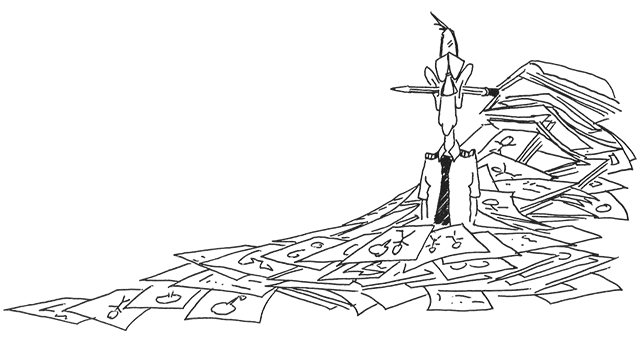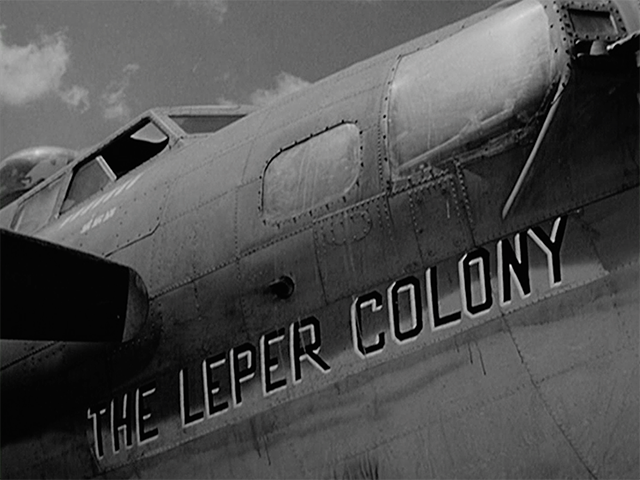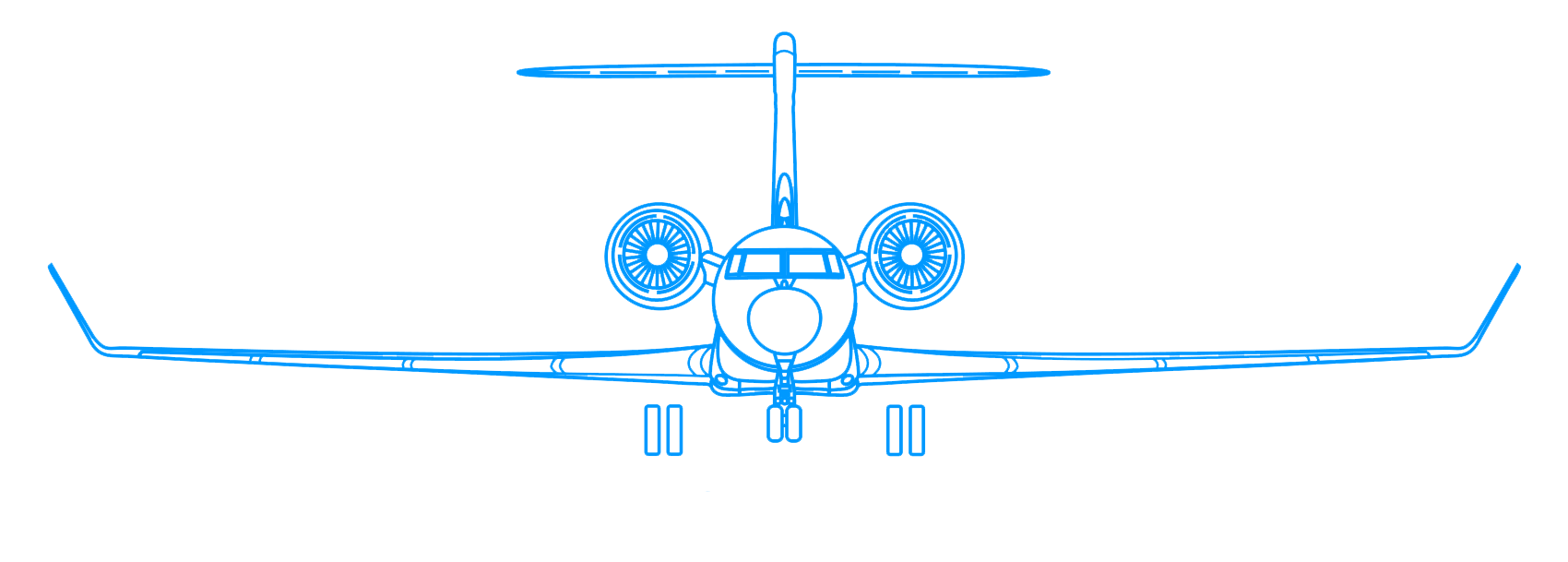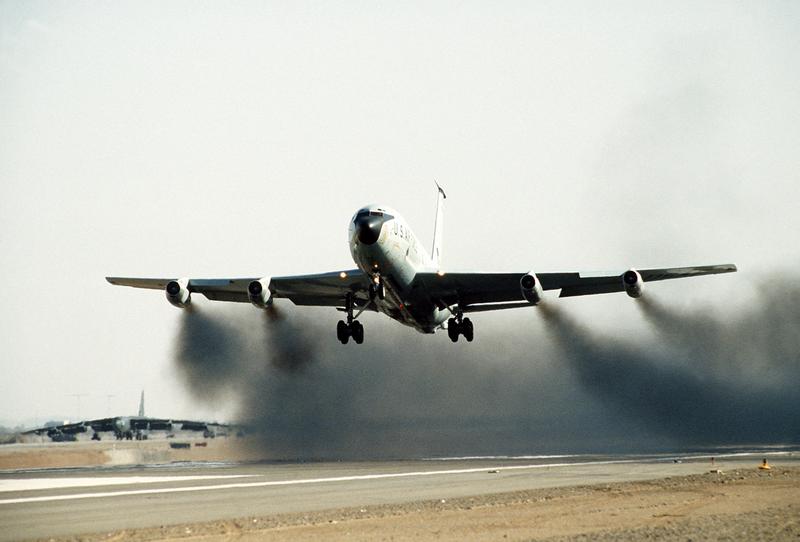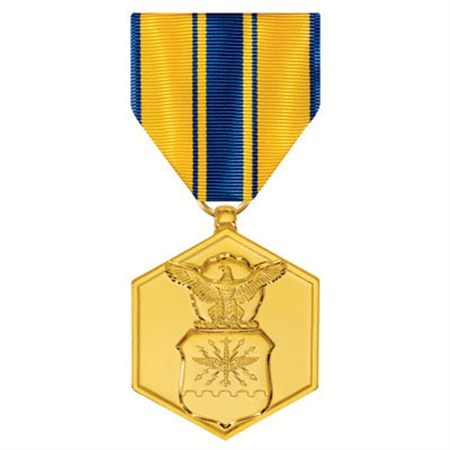"The Rules" are twenty-six ideas I've collected over the years that seemed relevant enough to life in general that I've written each down with a short story to reinforce each in particular. This is Rule Number Two.
— James Albright
Bloom where you are planted; talent is rare and cannot be ignored.
(1981)
"You men are probably wondering why we've got eleven spares tonight," the Wing Commander said at the conclusion of our mission briefing, "when we normally only have one spare per mission aircraft." We all sat silently. The wing commander asked a lot of questions. Fortunately he always had the answers.
"We are scrambling five tankers and eleven spares because sixteen aircraft is all we got right now." There was some laughter. Oh, it was a joke. "The mission is that important. But I don't want you spares thinking you aren't going to fly tonight. Everyone has to be thinking they are flying, we have to put five airplanes in the sky no later than 2016 tonight and that means you've got to be ready to fly when the times comes. That goes for sortie six, the first spare, all the way down to sortie sixteen. Even the Leper crew has to be ready!"
Now there was some genuine laughter. Everyone knew we were the Leper crew, but the brass wasn't supposed to call us that in public. We knew we were the bottom of the squadron and so did all the non-lepers. But officially we were crew S-118 and tonight we were Sortie 16. I looked to my right and saw the navigator and boom operator shift uneasily in their seats. To my left our crew commander had his ever-present grin. Captain Don Le Paige didn't mind leading the Leper Crew. He often got upset about just about everything. But leprosy wasn't a problem Don seemed to care about.
Not many people knew how I ended up on the Leper Crew, not even Don. And I was sworn to secrecy.
I sat in the copilot's seat with my trusty Woolworth's clipboard on my knee. I had two sets of takeoff data, my radio log, my fuel log, and my Strategic Air Command code book within the clip. Underneath that I had my 1KC-135A-1-1 green book, a hundred pages of charts that turned the airplane's weight and our outside weather conditions into takeoff data, the information we needed to set our throttles and know what speeds to fly. Each set of data took me about ten minutes to produce, not bad for a new copilot. But I was working to get those times down.
At 1930 everyone got the signal to start engines and by 1940 everyone, all sixteen of us, were on our way to the end of the runway.
"All sixteen got started," Don announced on interphone, "we ain't going anywhere tonight, boys."
Don lined us up on the parallel taxiway and set the parking brake. He tilted his ball cap over his eyes and reclined, as best he could. I knew that he would remain motionless there until I tugged at his arm, he would remain oblivious to the radio or any other stimuli. He could go instantly asleep in seconds in any environment. It was his one and only talent that I envied.
The boom operator was fast asleep too. Behind me the navigator was reading a magazine. The temperature was dropping and my takeoff data was only good plus or minus five degrees Celsius. I pulled up my clipboard and started on two sets of data for ten degrees less temperature.
The KC-135A was an old, underpowered airplane. Years later there were other KC-135's, I suppose they were B's, C's, and so on; but the KC-135A was the first. The engines were incredibly underpowered and at warmer temperatures couldn't lift the airplane off the ground at some weights. So the wizards at Boeing installed a system to inject water into the engines which increased the power from nine to twelve thousand pounds of thrust per engine. Our airplane tonight was carrying six thousand pounds of water. I had to figure my takeoff data based on using the water injection system, or assuming the water injection system failed - which it often did.
"Sortie 1, time is twenty-hundred," the command post announced, "cleared for takeoff."
Two miles ahead of us I saw the plume of black smoke kick up and a few seconds later I saw the airplane race down the runway and by the time it was abeam us the nose was rotated and off it went. One down, four to go.
I hacked my stopwatch and looked ahead for the second plume of black smoke. "Sortie two, negative water, aborting."
"Why can't he go dry," I said aloud to myself, "he should have takeoff data for that." I double-checked my takeoff data just to be sure. Scanning the thirty or so entries on each page I realized the answer to my stupid question. The dry data - the takeoff data computed without water injection - was based on dumping the water overboard. The dry data was based on an airplane which weighed six thousand pounds less. It took fifteen minutes to dump the water. We don't have fifteen minutes.
"Sortie three, negative water, aborting." Another!
"Expedite off the runway," the wing commander himself stepped onto the tower frequency, "we're fighting the clock here." I nudged Don who sprang to life and closed the gap between us and Sortie 15.
I pulled out a blank takeoff data form and started a new set of numbers. Five minutes. I completed a set of data in five minutes.
"Sortie seven, away!" We now had two airplanes in the sky. "Sortie eight, engine fire, aborting."
One-by-one, the next four airplanes aborted. Sorties thirteen and fourteen made it. Now we just needed to get one more airplane airborne. Don was paying attention now. The tanker in front of us taxied onto the runway and we saw the power come up. Seconds later there was black smoke billowing behind the airplane, but not the normal huge cloud. "Sortie fifteen, no inboard water, aborting."
"Takeoff checklist," Don announced, "we are on stage."
I turned on all the aircraft external lights, switched the transponder to transmit and waited as Don brought all four power levers to the dry power limit. "Start the water," he commanded. I wrapped my left hand around the guard just forward of the panel and pushed the switch to the up, "START" position. The "dump" light came on. The switch was wired upside down.
"Damn!" Don yelled and brought the throttles back.
"No," I yelled over the interphone, "We can go."
"What?"
"I figured dry data, we can go."
"We're out of time," Don said pointing at the cockpit clock, "twenty-sixteen was the last minute, we don't have time to dump the water."
"No," I snapped back, "I figured the takeoff with dry power without dumping the water. We can go."
"You did?" Don hesitated, smiled, and pushed the throttles forward again. "Cool!"
And off we went. It wasn't pretty, but we had the necessary speed at the end of the runway and rotated. We skimmed the tree tops for a few miles but eventually joined the formation and completed our air refueling. On our way home I checked in with command post and gave our coded status report, expecting the normal sterile coded reply. Instead I got a message "in the clear," which would be a first for me.
"The pilot and copilot are directed to report to the wing commander after landing," the voice on the radio said, "immediately after landing."
I followed Don to the wing headquarters and we waited in the outer office. It was a spacious affair with wood paneling, lush carpeting, and furniture that matched. I had never seen such an office in my nearly two years in the Air Force. Finally the wing commander's secretary opened the inner office door and gestured us in.
Don marched in and I followed. He saluted and reported, "Captain Le Paige and Lieutenant Albright reporting as ordered, sir."
"Captain," the wing commander bellowed, "if you think getting off the ground with seconds to spare makes you a hero you got another thing coming!" He stared Don right in the eye and was yelling while just inches away. He yelled about officership, integrity, regulations, and cowboy antics. I stood rigid, at attention with my eyes caged forward. But in the periphery I could see the wing commander's finger jabbing at the air in front of Don as he raged onward. I could see rivers of sweat flowing from Don's scalp. I think he was trembling.
"What gives you the right?" The wing commander stepped back, as if to take a breath. "What gives you the right to gamble with the lives of your crew and with my million dollar airplane?"
At last I figured out what the issue was. "Sir?" I interrupted.
"And you," the wing commander spun on his heels and faced me for the first time. "We put you on the Leper Crew to keep an eye on the Leper! We put you on this crew after you saved the day with that engine blowing up in Guam. We gave you specific instructions to keep the Leper Crew safe. You're the lieutenant who could stand up to any captain, or so we thought. How could you let this Leper takeoff with dry power before dumping the water?"
"We had the performance," I said calmly, "sir."
"No you didn't, you God Damned Liar!" Now the wing commander was giving me both barrels and that dagger-like finger was at my nose. I tried to remain expressionless and wait my turn. While I was the least experienced officer in the room, I knew a lieutenant cannot win an argument with a colonel. Besides, over the years this method was a winner for me.
"Any copilot knows it takes fifteen minutes to dump the water!" He gulped for air. "And I was there! I saw the power come up, come back, and up again. You didn't dump the water."
The wing commander's face was beet red and he was out of breath. As his shoulders started to slump I bent over to reach into the leg pocket of my flight suit. "Sir," I said while finding the correct page, "I did six sets of data, including one for taking off without water injection and without dumping the water."
"Bull shit!" He snapped the papers out of my hands and fell into his desk chair. He studied the papers and compared the numbers on all six pages. He sat back in thought for a minute. Or maybe it was five minutes. Don's breathing started to take on a normal rhythm again. The steady flow of sweat down his temples had stopped, but his flight suit was soaked.
"Why did you do six sets of data, lieutenant?"
"When Sortie Two aborted," I answered, "it seemed like the thing to do."
"Good job, men." He didn't smile, but the pained look on his face was gone and he seemed, well, relaxed. "Dismissed."
The next week a commendation medal appeared in my mail box. No fanfare, no ceremony. "Lieutenants don't get commendation medals," I was told when I asked the squadron executive officer. I showed her the medal and certificate. "Well I'll be," she said, "I guess they do. What'd you get that for?"
"Takeoff data."
Everything else was ops normal, except for Don. He was a bit reserved and appeared to be taking everything more seriously. The leper moniker seemed to have bite now, he was on a mission to kill it. During our next mission we were number five of a five-ship formation over the middle of the north Atlantic heading back to North America. These "fighter drags" had us escorting and refueling a squadron of fighters to the halfway point where a flight of England tankers took over. We would turn one-eighty and come home without the fighters.
It was just passed midnight but the glow of the radar by my left knee kept things illuminated. Set to its furthest range I could see the line of thunderstorms the navigators were chatting about.
"Formation, turn left new heading two, four, zero." Don waited until the first four airplanes started their turns and dutifully slid into our number five position.
"When we turning west," I asked.
"When lead tells us to."
I looked at my fuel log again and again. Another ten minutes, I told myself.
"Formation," the radio crackled, "turn left new heading two, zero, zero." Don busied himself with the change while I looked at the radar again. Its green glow showed a line of something to our right, maybe fifty miles. The line started at the bottom of the screen and extended beyond the top.
"Where's this line end?" I looked to the navigator for reassurance. His scope was ten inches wide to my scope's paltry three inches.
"Don't know."
"Don't worry about it, James." Don gestured me back into my copilot's seat. "There are four airplanes out there looking at this too. We can't break formation."
Every way I computed it, the fuel didn't add up. I took our fuel on board, subtracted the difference from the fuel log and the expected fuel burn and came up with a very small number. Then I took the fuel flow rate on the engine gauges and multiplied that by the ETA and came up with negative numbers. Nobody seemed to care.
"Formation," the lead navigator announced again, "turn left new heading one eight zero."
"What?" Now I knew the world was mad.
"Don," I said while pulling my fuel logs out with the navigation chart on top, "at this heading do you know where the next land fall is?"
"The Antarctic?"
"Yup." I said with a grin. "If you want to go swimming I'm there. But I'd rather spend another night in our wing commander's office. It was so much fun the first time."
"You are right," Don said. He clicked off the autopilot and banked sharply right. "Number five," he announced calmly on the radio, "is out of gas and heading for home."
The screaming on the radio was, in one sense, pretty intense. But in another sense it was funny. Don was as happy as I had ever seen him. Until it was time to call command post. "Both pilots will report to the wing commander."
"We're getting good at this," Don said with a smile.
We sat in the wing commander's outer office, just as before, except this time we could hear the command post radio crackling. We had been on the ground nearly an hour and the formation was still airborne. Number two broke formation next and made it back to base, with two engines flamed out due to fuel starvation. The formation itself threw in the towel and was headed back. We landed right at legal fuel minimums an hour ago. How much fuel could they have now?
The formation headed for Gander, Newfoundland. Don sat motionless, mesmerized by the radio. Finally word came, the last two airplanes made Gander, each with two engines flamed out. "We're the only ones to land with four," Don said happily, "I guess we did good."
The radio fell dead and the wing commander walked out with his coat on. "What are you two doing here," he asked.
"We're the guys who broke formation," Don said while coming to attention, "you asked to see us."
"Oh," he said, blushing. "Well, good job guys. Good job. Dismissed."
It was three a.m. as we made our way to the wing headquarters parking lot. I wasn't at all tired. "You were right, James." Don was happy.
"Yeah," I agreed, "formation integrity isn't all it's cracked up to be."
Don stopped and turned to face me. "Oh no, not that. When you first came on the crew I asked about the engine blowing up on you with your last crew. You told me then that 'A practiced calm will always serve you well.' That's what I was thinking about.
That was one of my rules: A practiced calm will always serve you well, even if it is forced, remaining calm will become more natural in the future.
"I wasn't worried at all this time with the wing commander," he said.
I thought of that particular rule after my first engine failure in the T-38. But it really does work outside the cockpit too.
A month later my name was called during an award ceremony and the squadron — myself included — was stunned to hear the wing commander awarded me a commendation medal for going above and beyond with takeoff data. I was the only lieutenant in anyone's memory to get a commendation medal, which was normally awarded to captains or above. The wing's chief pilot noticed and hired me away from the Leper Crew. It would appear that I had indeed bloomed where I was planted.
I kept up with Don for the next fifteen years, until he died. He really was about the worst pilot I've ever known, but he was a good guy. I miss him.
